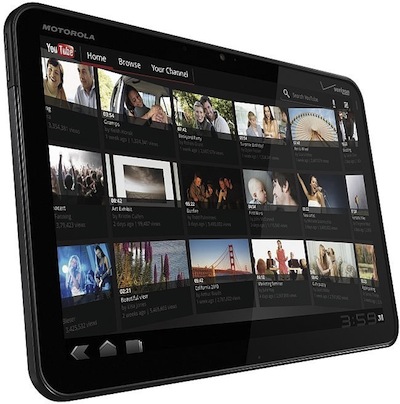5 things you should learn from CES 2011
Today may officially be Day 2 of the Consumer Electronics Show, but, based on vendor announcements, it's really the fifth day. CES has a few lessons for those who live and breath tech, whether they work in the industry or follow it as analysts, bloggers, investors or journalists.
1. Rumors are often false. I shouldn't have to state this. Short of a reliable gadget blog/news site getting hands on a verifiably-authentic photo or video of something new -- or actual product -- rumors can't be trusted. The more general or speculative, the more likely to lead nowhere.
For example, it was widely rumored that Microsoft would debut during the opening keynote a Windows version for tablets, show off tablets running the new operating system and announce a new settop box to compete with Apple TV and Google TV.
It's unconscionable, or at least irresponsible, for so many people responsible for getting out accurate information to parlay this rumor game.
2. Everyone is asking about the tablet not here -- iPad 2. Apple isn't participating in CES, but its presence is as specter -- the ghost in the trade show. Perhaps iPad 2 would cast shorter ghostly -- or should that be ghastly -- shadow if more of the new tablets were releasing sooner. Many of them are tied to Android 3.0 (aka Honeycomb), and it's simply not yet ready.
I've spoken to a couple analysts and journalists who already are calling the tablet wars over, with Apple the sure winner. That's simply an outrageous assertion to make based on two (soon to be three) quarters of iPad sales. Apple may have reinvigorated the category in 2010, but tablets have been around and will be around for some time.
The category's sudden resurgence is reason enough to watch for Apple to shake out. There's recent precedent: smartphones. The category was slow growing before Apple released iPhone in 2007, then jumpstarted. Soon after, many of the same voices bullish about iPad today predicted iPhone would dominate the smartphone market. They were wrong. Android suddenly and unexpectedly stormed the smartphone OS market, passing iPhone -- at least in the United States -- in late 2010.
3. Many tablet vendors are pursuing a flawed go-to-market strategy. Any tablet that requires carrier contractual commitment is already doomed. Apple was right to make data plans optional for iPad. Tablet technology will change too quickly over the next 18 to 24 months -- the typical contract length either in Europe or the United States. Carriers and manufacturers are asking too much of consumers to lock into one device for so long.

The strategy reminds me of 2000 and 2001, when consumers could get PCs for cheap or free with two- or three-year ISP commitment. Many of them came to regret the deals. If iPad appeals for no other reason, contract-free for affordable price will be among the most important.
4. CES is Apple's treasure trove of competitive information -- hell, it's better than corporate espionage. Most of the tablets and many of the hot new smartphones announced at CES won't ship for months. Apple is likely to announce iPad 2 first. While it's too late in the development process for Apple to make substantive design changes, marketing can be fine-tuned. Apple now knows what to expect from the fragmented market of tablet competitors, and those offering Android or Windows Phone 7 smartphones.
Apple also can better play its announcement. There's a lot of angst among vendors about what Apple will do and, as I've asserted so many times, the company's stock thrives on rumors. Apple can effectively shut out competitor sales simply by announcing iPad 2 before many of the tablets ever ship -- even if Apple doesn't ship for a month or even more.
5. CES is too big to be any longer relevant. The trade show exploded in size after Comdex's demise in the early Noughties. It's now an enormous venue, where many new products are announced too many months before they're released to market and too many others are lost in the noise. There's more to gain in competitive insight than the real value of networking with customers or partners.
Endpoint president Roger Kay pegs it: "Once upon a time, vendors met developers and distributors at the show. A trade booth was a modest enough affair, a place where vendors could show their proposed wares to people who might actually buy them. All that is long gone. These days, the venue is stuffed to the gills with 'students' and industrial spies. Mostly, your competitors, in various guises, come to your booth to see what you have."
